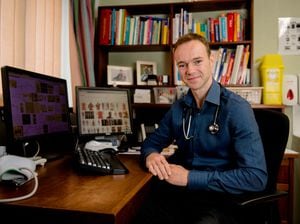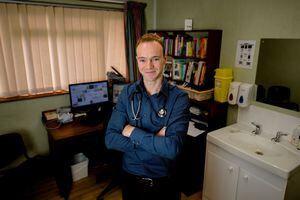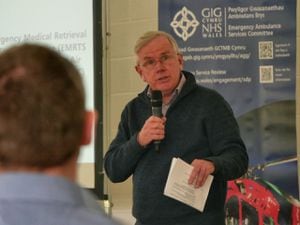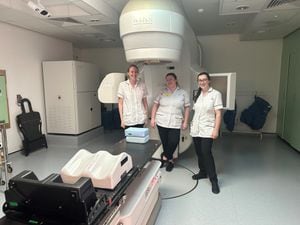NHS 10-year plan: Skype calls won’t solve problems, says Shropshire GP
Government plans to relieve pressure on the NHS by increasing use of technology fail to address the key issue of staff shortages, doctors have said.

Prime Minister Theresa May has unveiled a 10-year plan for the NHS, promising an extra £20.5 billion a year for the NHS by 2023-24, and insisted it would "relieve pressure" on the system.
One of the key parts of the plan was giving patients digital access to their GP through things like video consultations on Skype, as well as being able to make appointments, manage prescriptions and view health records online.
But Dr Adam Booth, a GP at Shrewsbury's Prescott Surgery, believes some of the proposals in the NHS are a "distraction".
"My feeling about it is that it's all irrelevant," he said. "The challenges are on the ground in the NHS.
See also:
"The fundamental problem is staffing and resourcing and this is not going to be solved by headline grabbing political stunts like this. It's a distraction and a non-issue. It's not the challenge to the NHS."
Dr Booth said video consultations would present some practical difficulties.
"Primarily you can't actually examine the patient if you need to," he said.
"But there are other issues like IT infrastructure and broadband connection, which limits what you can do."
Dr Ian Sykes is a GP at Oakham Surgery in Oldbury in the West Midlands and he believes that video consultations are better than telephone consultations.
Option
"It's another option to communicate with patients and it is probably better than a telephone consultation as you can see someone," he said.
"And this is all fine but you still need a GP or a healthcare professional at the other end. This technology is all great but there's not enough doctors and nurses.
"Yes Skype is another way of seeing our patients, but it's just that. They trialled it in the 111 service and it worked to an extent, but there's still only so much you can do when you see patients on a screen and not in person."

The government has promised to recruit tens of thousands more doctors, nurses and other health professionals – but its full workforce plan is not expected until later this year.
The Royal College of Nursing (RCN) said that staffing had to be a priority.
Dame Donna Kinnair, the acting chief executive and general secretary of the RCN said: "When existing services are already under strain, NHS staff are waiting for a further plan to address the extra staff needed to keep care at the highest quality.
"The NHS in England is already short of more than 40,000 nurses and the figure is rising.
"NHS England and the Government must urgently address these chronic shortages to make the plan the success it deserves to be."
Other measures outlined in the 10-year-plan included greater support for those with mental health conditions, improving maternity safety and giving greater mental health support to new parents and cutting waste, including back office savings of more than £700 million.





